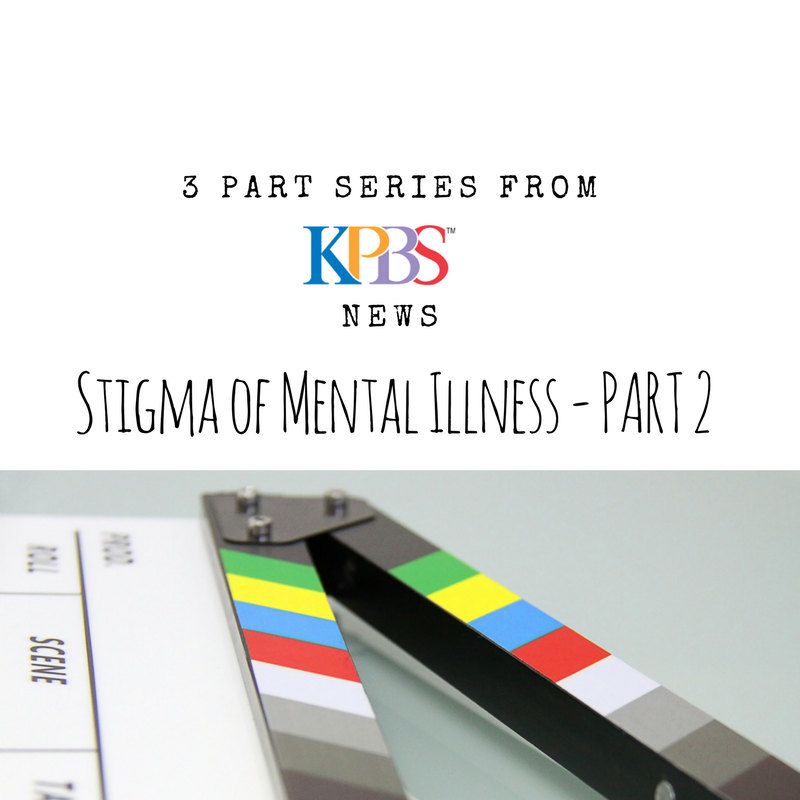January 4, 2018 | Kenny Goldberg
When Kerry Martin was in graduate school at Harvard, she was deeply troubled. She was suffering from bipolar disorder. She was struggling with her sexuality.
To make matters worse, her mother had recently attempted suicide.
One day, Martin worked up her courage and made an appointment at Harvard’s Mental Health clinic.
“And I went in, and I met with a woman who was just getting her degree, I guess,” Martin remembered. “And I just poured my heart out to her. I said, ‘here’s what’s going on with me, my family. I think I’m gay. I’m having a real hard time with this.’”
But people with serious mental health challenges are sometimes considered to be different, dangerous or even beyond help. That same kind of stigma against mental illness can exist in our health care system, too.
Part One: For Those With Mental Illness, Battling Stigma Is First Step In Getting Help
Part Three: Education Is Key To Conquering Stigma Against Mental Illness
When Martin got back to her apartment later that day, the therapist called her on the phone.
“And she says to me, ‘Kerry, I can’t help you.’ And I just kind of like, what? And she’s like, ‘I can’t help you’. And I was gonna have to ring somebody else. I’m like, I thought to myself, I’m beyond help.”
Martin felt hopeless. A few months later, she tried to kill herself.
Her roommate found her and called an ambulance.
Martin remembers being in the emergency room, writhing around on a gurney, while a nurse was trying to stick a tube down her throat.
“The nurse said to me, ‘Lay still, you did this to yourself.’ And I will never, ever forget that comment,” Martin said. “It’s like, you want compassion. Yes, I did this to myself, I guess I did. But at that moment, that’s the last thing I wanted to hear.”
Today, Martin runs the nonprofit Hope Xchange. It’s a phone and text-based service that focuses on preventing suicide in the LGBTQ community and in people with bipolar disorder.
Martin tries to provide the kind of support and compassion she wished she would have gotten years ago.
Belittled and dismissed
It’s not unusual for people with a mental illness to say they’ve felt belittled and dismissedby health care providers.
Some believe there’s a certain degree of stigma against mental illness built into the health care system.
Dr. Michael Plopper is medical director at Sharp Mesa Vista Hospital in Kearny Mesa, the largest private mental health facility in Southern California.
He said Medicare, for example, has a lifetime cap on the number of days a person can stay in a psychiatric hospital.
“Whereas, that’s not true for physical health. So still, to this day, Medicare discriminates in that way,” Plopper said.
Then there’s a federal policy called the IMD exclusion.
It prohibits fee-for-service Medicaid programs from covering inpatient care in free-standing mental health facilities like Sharp Mesa Vista.
“So what that does is, creates a logjam for these people, it creates problems in access to care for people with Medicaid,” Plopper said. “And so that’s a federal discriminatory law.”
Low expectations
Judi Holder is an administrator with RI International, an agency that provides peer-support services for people with mental health challenges.
Years ago, Holder was in psychiatric care herself. When she was diagnosed with borderline personality disorder, she was faced with a life of lowered expectations.
“I was basically told that it was important that I accept the fact that I was ill, accept the fact that that was who I was now, and told that I could never work again,” Holder recalled.
Holder remembers feeling worthless.
“Being told to kind of accept this new life, where there were no responsibilities, no expectations, was almost worse than the mental health challenges I was experiencing,” Holder said.
Her breakthrough came when she took a peer support class. The teacher had suffered from severe mental illness but was high functioning and fully employed.
“There was certainly a lot of doubt on my part,” Holder remembered. “But there was just that tiny glimmer of hope that said, maybe that can happen for me, too.”
Holder said there are plenty of caring and competent mental health providers. But she believes if all they see are severely troubled people, they just don’t expect people to get well.
“And so, in order to look past that, you have to be open to the perspective that what you see is not all there is,” she said.






